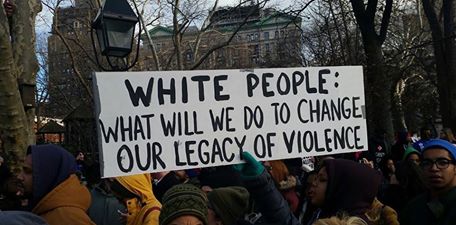“Death and life are in the power of the tongue: and they that love it shall eat the fruit thereof.” – Proverbs 18:21
For the past year, I’ve worked with a passionate group of citizens in the community of Miami Shores to engage in conversations about race and history. Recognizing the demographic realities, as well as social and political inequities, in their community, the South Florida People of Color (the organization) is on a mission to create an antiracist society in South Florida. The results have been powerful. In our small group meetings on Saturday mornings, we host folks who wanted to explore topics that are sometimes awkward, sometimes painful, and loaded with landmines. But we persist. And from the conversations have come powerful revelations.
During one of our last sessions, a number of the participants who identify as white discussed how difficult and isolating it was for them to try to discuss racial issues with their families and friends. They described being shut down and shunned. The conflict and discomfort in their voices and body language hung in the room. One participant said that when she brought of issues of race at the dinner table, she felt like members of her family were going to kill each other.
Another participant, an African American woman, immediately reacted to the comment. With her voice cracking and her eyes full of tears, she talked about her only grandson and her worries and fears for him in a world where Trayvon Martin, Jordan Davis, and Philando Castile can be killed for little or no reason, and with no recourse.
In a poignant moment, she reminded the whites in the room that, while the conflict around their dinner tables may seem difficult and fraught with figurative violence, the inability of whites to address the realities of individual, institutional, and systemic racism was literally a matter of life and death for people of color.
Debby Irving describes this “culture of niceness” as a key factor in whiteness. It is a white societal norm that unpleasant topics such as racism have no room in polite society. Those who persist in bring up those topics are deemed radicals or social outcast. And in this way, whites are able to insulate themselves from acknowledging or exploring the real source of inequality in the United States.
One element of white privilege is the ability to designate legitimate and illegitimate lines of discussion and debate. Those topics deemed taboo never see the light of day. The sad reality is that those subjects often involve the critical conversations that need to be addressed in order to make real progress in our society.
When I was younger, my mother frequently quoted Proverbs 18: 21 to me: “Death and life are in the power of the tongue: and they that love it shall eat the fruit thereof.” She recited that to me to remind me of the power I wielded in using my words as either a tool for uplift or destruction. It was a call for the exercise of rectitude in how I spoke about other people, and the nature of the conversations I entertained. Her lesson made me keenly aware of the personal power of my speech, and the responsibility I had in how I engaged it.
After the conversation in the race dialogue, this verse took on an elevated meaning. The reality is that white people have the responsibility for dismantling white supremacy; they created it, they benefit from it, and being aware of its destructive power and doing something to stop it is work they must do.
But part of white privilege means whites have the power not to engage, not to discuss, and not to act. To never allow the idea of racial inequity or white privilege to enter their consciousness or float across their tongues. That privilege translates into the power of life and death for the people at the margins who suffer in the midst of white silence and white fragility.
This in a country that prides itself on freedom of speech and expression as a fundamental part of our political and social identity.
We can talk about anything…just not that.
This mindset, this consciousness paralysis, is fatal.
The South Florida People of Color remains committed to changing the world one room at a time, by creating safe and open spaces where people can interact, learn, share pain, and exchange perspectives. What we have seen has convinced us of the power of the tongue as an important point in constructing an antiracist future for our communities and our nation.

